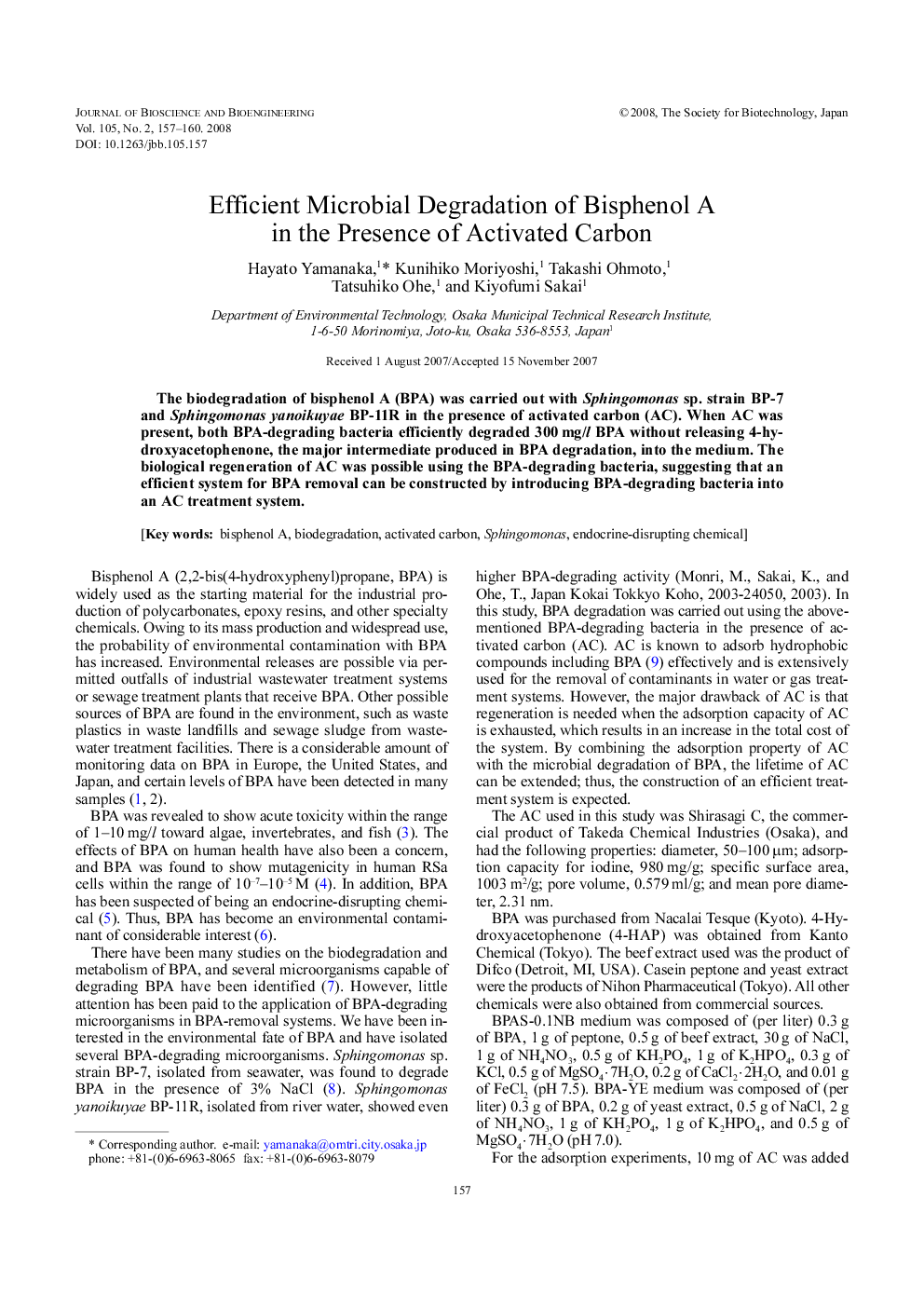| Article ID | Journal | Published Year | Pages | File Type |
|---|---|---|---|---|
| 21941 | Journal of Bioscience and Bioengineering | 2008 | 4 Pages |
Abstract
The biodegradation of bisphenol A (BPA) was carried out with Sphingomonas sp. strain BP-7 and Sphingomonas yanoikuyae BP-11R in the presence of activated carbon (AC). When AC was present, both BPA-degrading bacteria efficiently degraded 300 mg/l BPA without releasing 4-hydroxyacetophenone, the major intermediate produced in BPA degradation, into the medium. The biological regeneration of AC was possible using the BPA-degrading bacteria, suggesting that an efficient system for BPA removal can be constructed by introducing BPA-degrading bacteria into an AC treatment system.
Related Topics
Physical Sciences and Engineering
Chemical Engineering
Bioengineering
Authors
Hayato Yamanaka, Kunihiko Moriyoshi, Takashi Ohmoto, Tatsuhiko Ohe, Kiyofumi Sakai,
